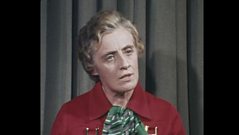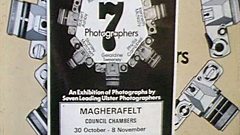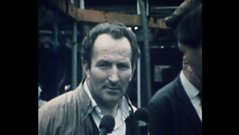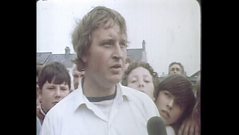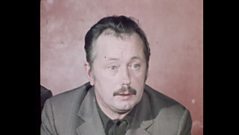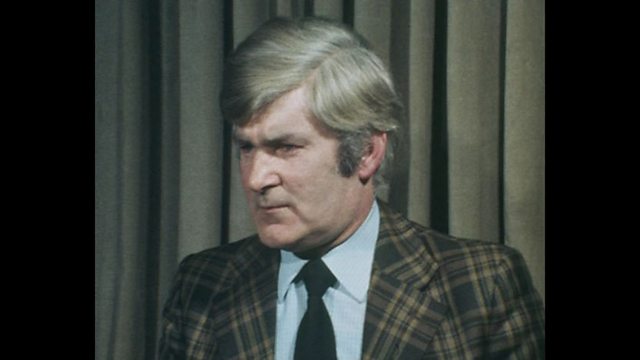
Loyalist John McKeague wants 'special category' status reinstated
Loyalist leader John McKeague says when loyalists meet the Secretary of State this week they will try to persuade him to change his mind about ending 'special category' status.
Reporter Brian Walker asks loyalist leader John McKeague to confirm two assumptions: was violence at the weekend a response to Secretary of State Merlyn Rees' ending of 'special category' status and, was it organised by the Ulster Loyalist Central Co-ordinating Committee? Following the Ulster Workers' Council strike, the ULCCC acted as a forum for loyalist paramilitary organisations.
McKeague clarifies the situation. The violence was not organised by the ULCCC but by the Ulster Army Council (UAC, a grouping of loyalist paramilitary organisations, that was formed in December 1973 and played a role in building support for the Ulster Workers' Council Strike in May 1974). However he denies that the UAC had been responsible for the burning of a bus.
McKeague says the ULCCC and the UAC have been playing a very constructive role over the past six months: "In trying to direct that we get back on to a political normality before anything else happens; for if we have political stability then we can go forward to get all the other things into proper perspective".
Duration:
This clip is from
More clips from 01/03/1976
-
![]()
M谩ire Drumm on the ending of 'special category' status
Duration: 01:40
More clips from Scene Around Six
-
![]()
Oxford Street Bus Station—21/07/1972
Duration: 00:50
-
![]()
Cavehill Road bomb—21/07/1972
Duration: 02:32
-
![]()
IRA challenge Whitelaw—13/06/1972
Duration: 01:07

